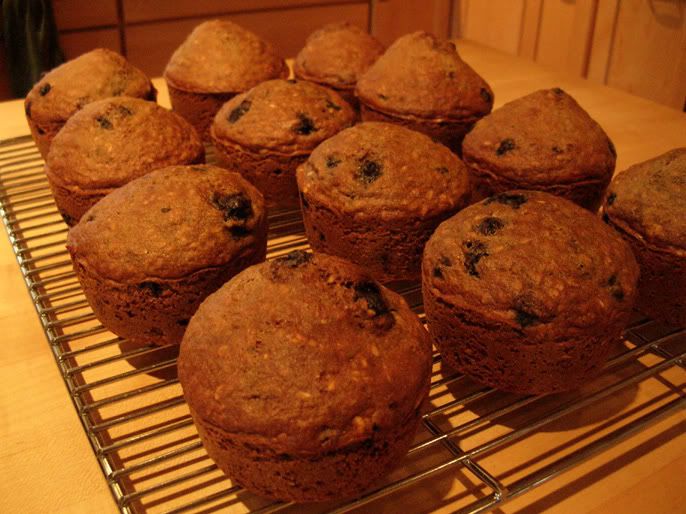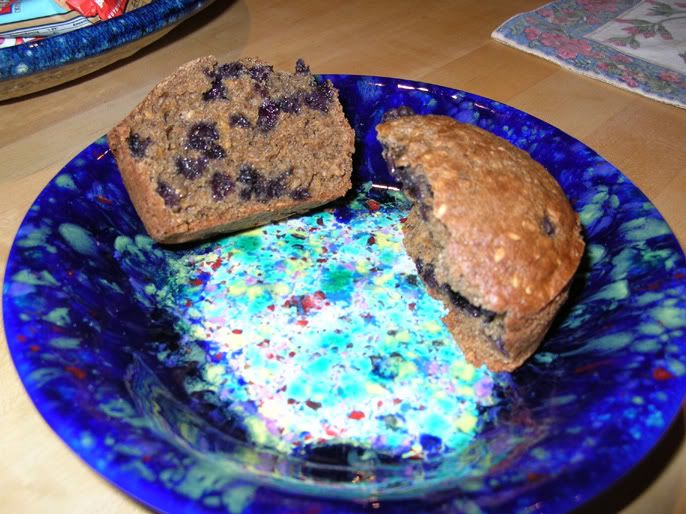I've been real busy the past few weeks so have not been online much, but did make time to bake each weekend.
Back in Feb., I was lamenting that my Thom Leonard boules, which I had been making successfully for weeks, were suddenly getting overproofed and collapsing when hitting the hot stone (thread here). I was wondering if it was my switch to 100% organic King Arthur Artisan flour, or if my starter is getting too strong and acidic. I took the advice people here gave me about folding the dough more and paying attention to shaping better. So I did a test to see if the flour played a role or not, but also incorporated the advice given on folding, and I was careful to ferment them at about 70-75F rather then 80-85F as done earlier. To see if my flour switch played a role, I bought some regular King Arthur AP flour and made two batches of the Leonard loaf side by side, one batch with KA organic artisan flour and the other with the KA AP. I folded each batch 4 times, 30 minutes apart during the first bulk fermentation. I also carefully shaped each loaf into a tight boule, rested for 10 min., then placed in the bannetons, and I could not believe how high the loaves rose during the final proof, after only 3 hours:
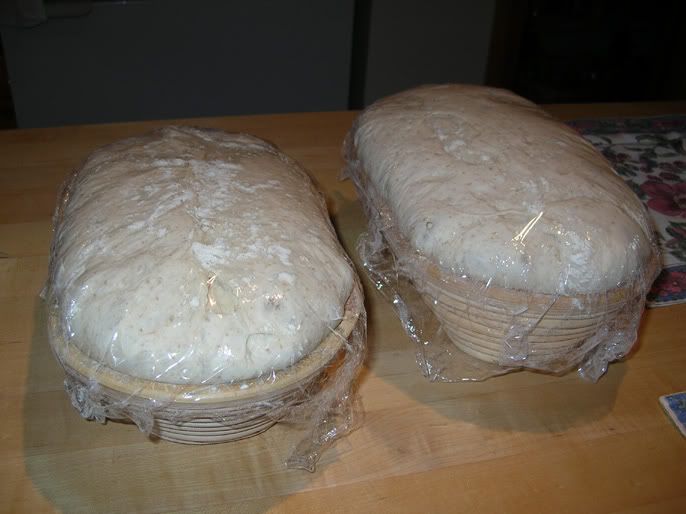
I was in for even more surprise when I baked them - the oven spring was HUGE. Here are the loaves made with the King Arthur 100% organic artisan flour on the left (oval shape), and to the right are the ones made with the King Arthur AP flour (round shape). No discernable difference in the quality of the rise, oven spring, or crumb structure, they all came out excellent, and all because I paid a lot more attention to proper folding and shaping, and note that these were wet doughs:
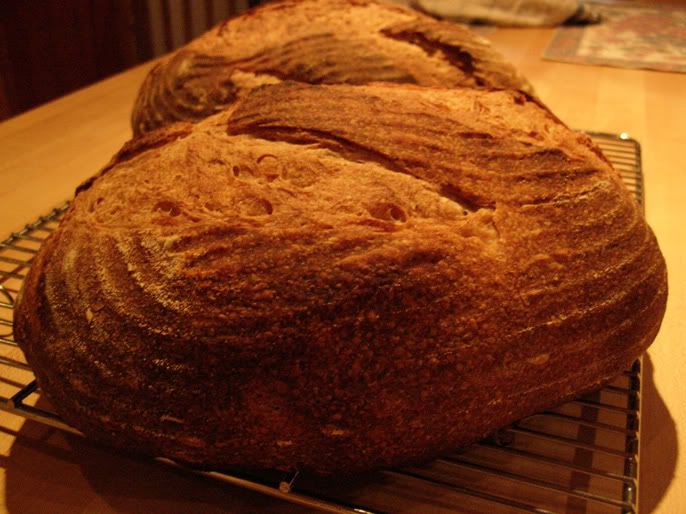
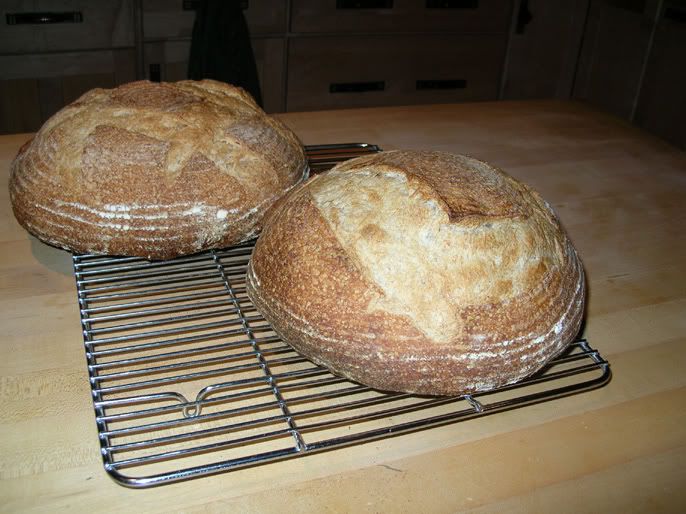
I also retarded 2 of the loaves in the frig for about 6 hours before baking right out of the cold frig and into the hot oven, and got equally huge oven spring as for the ones I did not retard.
Here is the crumb shot of yet another batch a week later done by the same folding/shaping method, but using King Arthur organic whole wheat flour for 30% of the flour in the recipe (I have not been able to get that yin/yang symbol again in my bread that JMonkey likes though, ha!):
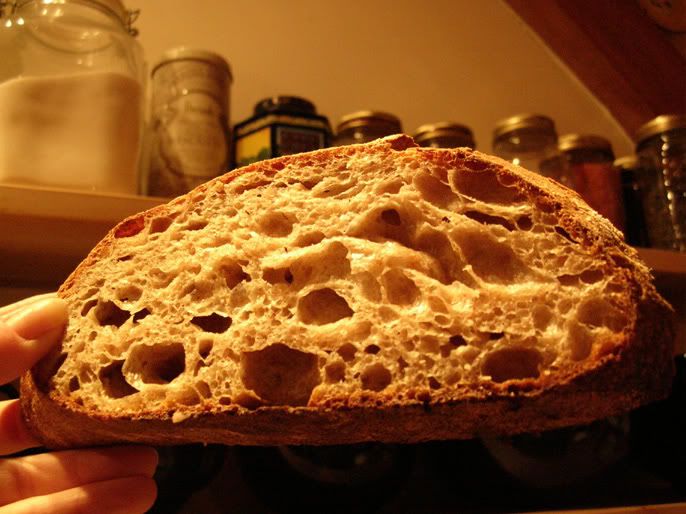
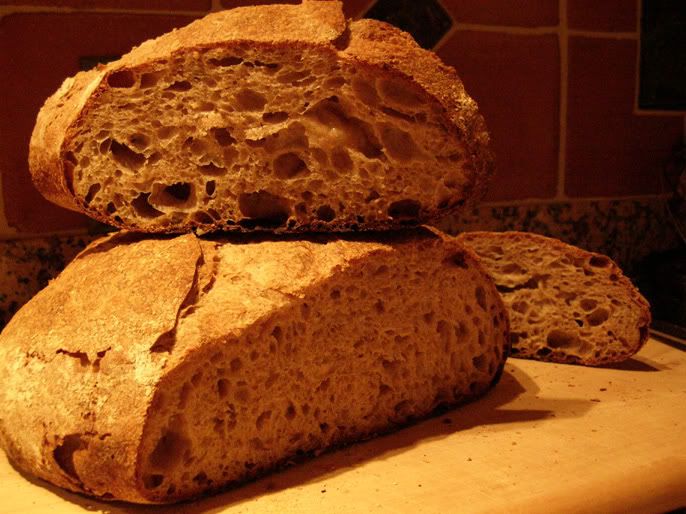
Conclusion of the experiment: My earlier overproofing problems were not due to the KA organic flour. It performed equally as well as the KA AP flour. The extra folding of the wet dough, and tighter shaping of the boules seemed to make all the difference, plus probably cooling the fermenting temps down to 70-75F I think helped. Thanks especially to gt and Bill Wraith for pointing out my lack of folding as being the main culprit. I've been having consistently great outcome with this recipe ever since.
I also made some sourdough spelt blueberry flaxseed muffins. These rose nice and high, but needed a little more sweetening and perhaps a bit more salt than my usual recipe calls for, probably because of the extra liquid and flour brought in by the sourdogh levain, otherwise they were quite nice. Somehwhat dense due to 100% spelt flour, including in the levain. The regular recipe for my muffins is here, but I modified it by expanding my regular batter white SD starter with 1 c. spelt flour and 1 c water (similar to how the King Arthur baking book makes a levain for sourdough waffles), which replaces the same amount of flour and liquid (oil) in the original recipe. Then followed the orginal recipe using baking soda rather then powder to get even more rise. Next time I will add a bit more oil, brown sugar, and salt:
